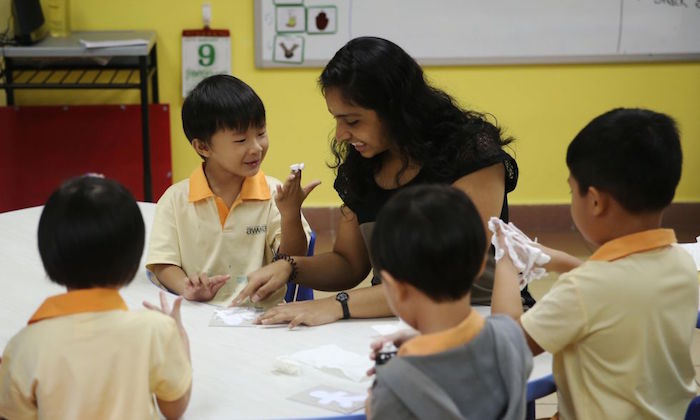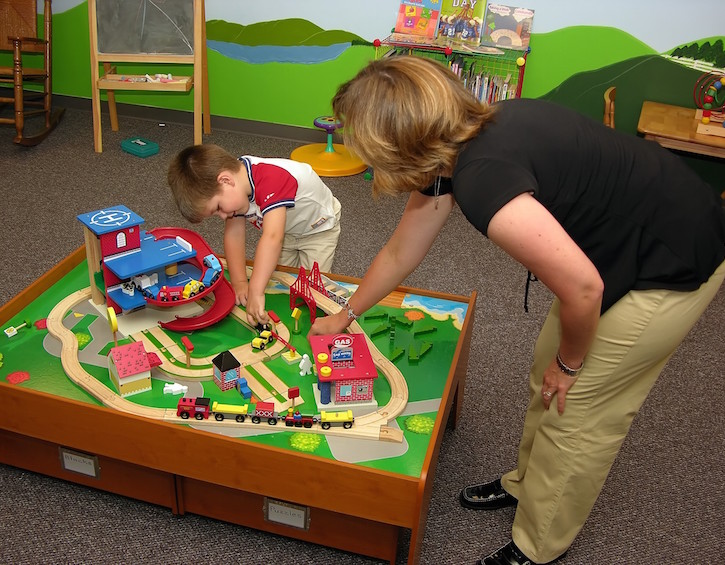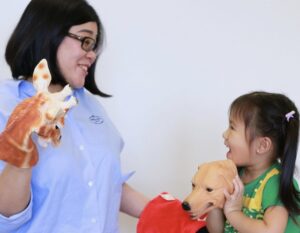







One mama shares her top tips for getting the most out of special needs education in Singapore, along with other helpful resources to keep parents supported.
We all have those days.
You know the ones that feel miraculous if you get a balanced dinner on the table and still put the kids to bed on time. As parents raising children with special needs, our job can be very rewarding and difficult at the same time. It’s no secret that juggling our daily lives with work and our children can be overwhelming on occasion. Thankfully, we live in a world that allows us to meet the demands of our children by accessing a wealth of information with a few clicks on a keyboard.
Acknowledging that we can’t do this on our own is perfectly acceptable, because some days we do need support. Every parent, even if your child doesn’t have special needs, will have moments where everything and anything that can go wrong eventually does. By utilising the resources and educational services available in Singapore, we can prevent parental burnout and maximise our effectiveness while parenting children with special needs.
9 Essential Educational Resources Available in Singapore
By making intentional choices and regaining balance, we can focus on our children and recapture our joy. The mantra “work smarter, not harder” comes to mind. To help us on this parenting rollercoaster, here’s a list of 8 places where parents can get support:


- Other parents and social media communities. Search for a specific condition or disability to find local groups or online forums to reach others who understand our struggles and triumphs. A great place to start looking for online resources is this link to 50 great websites for parents of children with special needs. In Singapore specifically, check out SSNAP (Singapore Special Needs and Parents) on Facebook.
- For parents with small children, ask your doctor for a referral to enroll him or her in the Early Intervention Programme for Infants and Children (EIPIC). There is often a waiting list for this programme and the cost is based on your income and subsidised by the Government. If you qualify, you could be offered anywhere from 5 to 10 hours of “motor, communication, social, self-help, and cognitive” therapy every week.


- Look for early education support for preschool age children. In 2012, the Government launched a pilot educational platform for a Development Support Programme. The main purpose was to provide therapies and learning supports for young children at the preschool level who were identified as having mild developmental needs and learning difficulties. After a successful run, they are planning to reach 2,000 children every year in all mainstream preschools.
- Find an educational option that’s suitable for your child and your family. This Ministry of Education list provides a detailed account of services available at schools across the island, along with contact addresses to find the best educational fit to meet the needs of your child.


- For those with pre-primary school children (0-6 years old), check out the Ministry of Social and Family Development (MSF)’s PPIP (Pilot for Private Intervention Providers) Program, where subsidies with PPIP-approved centers are available for Singapore/Singapore PR children.One such PPIP-approved center is ABC Center Singapore, whose EarlyPreps program has met the rigorous criteria set by the MSF – involving the curriculum, teaching staff, fees and other operational areas. Singaporean and PR children (from 0-6 yrs) who are recommended by their pediatricians to receive Early Intervention Programme for Infants and Children (EIPIC) or PPIP intervention, will be able to apply for and receive subsidies if enrolled at ABC Center.ABC Center Singapore is part of the global network of USA-based Applied Behavior Consultants, Inc. that has served special needs children for over 30 years in 4 continents worldwide. It focuses on applied behavior analysis as a teaching technique, and is one of the few in Singapore with Board Certified Behavior Analysts (BCBA’s) on ground to supervise the children’s program (and their BCBAs are such that their work have been published in respected clinical journals and presented in the international behavior analysis conferences!).ABC Center offers one-on-one therapy (both in center and in home), a group pre-school program, as well as social skills and independent living/vocational skills. It provides services for a variety of age groups — from Infant/Toddlers, to pre-school children, all the way to older children and teens/young adults.The aim of each of the programs is to provide the child with the required language, cognitive, social and behavioral skills needed to unlock their potential. ABC Center’s data shows that 100% of children make progress! ABC Center provides a comprehensive parent training program, for free, to all those who enrol. It also provides training to other special needs institutions/centers, giving training to the teachers and staff of other centers.
ABC Center Singapore, 318 Tanglin Road, Phoenix Park Office Campus, #01-59, Singapore 247979, Tel: (+65) 9423 6248, [email protected]


- Take advantage of technology and applications to help children master skills without the daily struggle of physically writing. Look for mp3 files, audiobooks, Optical Character Recognition technology, or apps that convert PDF to a voice reader for children who struggle with reading. As an added bonus, there are a variety of apps that allow students to easily organise thoughts and take notes to help with assignments. For mathematics, look for calculator apps that are able to convert written problems into problems on the app and ones that read problems aloud to bypass physical limitations.
- Look for speech-recognition software if a child struggles with pencil and paper skills. If a child has stronger oral skills, this type of software can make it easier for them to put their thoughts onto paper. Simply speak into a device and it will record the child’s words in a written format.


- Consider learning and teaching a child sign language to help their communication skills. The Internet has broadened our abilities and many sites or apps can show you the proper signs. Even if your child is verbal, signing can help a child communicate more effectively. It can also help children comprehend letters, words, and phonics at higher rates.
- Don’t rule out virtual education. Not every child flourishes in a public school environment. Whether it is due to medical needs, bullying, or learning styles, homeschooling might be a feasible solution for your family. Look for virtual education programs that allow your child access to lessons taught and written by certified teachers. This method literally brings the classroom into your home via computers, tablets, and microphones.
What other resources do you take advantage of, mama?






 View All
View All





 View All
View All







 View All
View All






